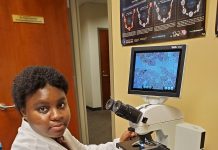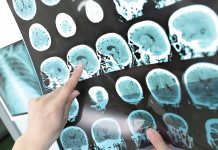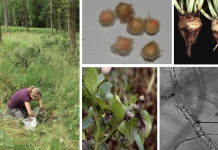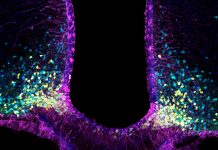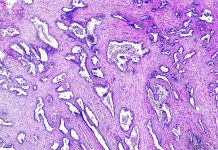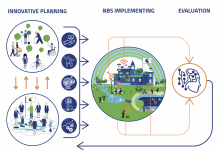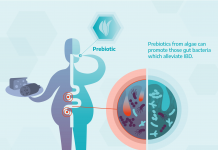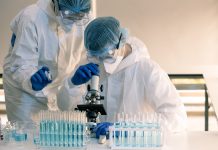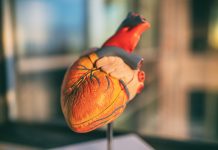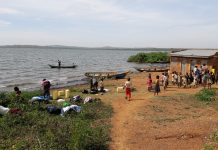Open Access Government produces compelling and informative news, publications, eBooks, and academic research articles for the public and private sector looking at health, diseases & conditions, workplace, research & innovation, digital transformation, government policy, environment, agriculture, energy, transport and more.
Home 2023
Archives
Machine learning helps to improve climate services
Machine Learning methods have received significant attention in the past few years as a game changer for product development and Climate Services
Machine Learning methods,...
The value of adult relationships in preventing youth suicide attempts
Associate Professor, Lynne Fullerton, PhD, University of New Mexico Health Sciences Center, examines the results of a recent study exploring the link between positive adult relationships and the impact on youth suicide attempt resilience.
Allergic asthma and the legacy of structural racism on the African American urban communities
Allergic asthma is a chronic inflammatory disease characterized by bronchial hyperactivity, disproportionately affecting African Americans.
Optical character recognition for ancient non-alphabetic scripts
Shai Gordin, Senior Lecturer at Digital Pasts Lab in Ariel University, looks at the deciphering of ancient non-alphabetic scripts, and the technology we use to understand it.
Great leaps in multiple sclerosis treatment but the holy grail is still ahead
CEO of MS Australia Rohan Greenland highlights the breakthroughs in treating attacks on the brain and spinal cord in multiple sclerosis (MS). But his sights are set firmly on the great unmet needs: to repair damaged nerves, reverse disability, and ultimately, prevent MS.
Trans-sectorial approaches sustainable disease control across agribusiness districts
Professor Laura Grenville-Briggs shares her stance on working together to counter the threat of oomycete diseases, focussing on trans-sectoral approaches to support sustainable plant and fish production systems in Europe.
The WATCH project: Tanycytes in health and disease
The WATCH project aims to elucidate how tanycytes mediate physiological processes by acting as gatekeepers between the brain and body, how their dysfunction is involved in various disorders and age-related impairments, and what can be done to prevent or correct these.
Innovative approaches to cancer treatments oncological engineering
Prof Richard M Hall, School of Mechanical Engineering, University of Leeds, explores how oncological engineering is paving the way for new and innovative cancer treatments.
Challenges bringing CB₂R medicine to bedside
Drug hunters explain how to overcome pitfalls on the way to CB2R medicine and therapeutics.
A new approach to older people’s end of life care: Living and dying well
Remodelling palliative and end of life care requires different ways of working, different partnerships and a sharing of power.
The euPOLIS vision: Improving well-being with nature-based solutions
The adverse effects of urbanization have taken a toll on people’s mental and physical health, here’s how co-design and nature-based solutions can lead the way in mitigating these risks.
Prebiotics from algae as a treatment for inflammatory bowel disease
The Algae4IBD project is studying the potential of probiotics and algae-derived prebiotics as a treatment for inflammatory bowel disease.
Construction of aggregation-induced emission monolayer at the air/water interface
Kohei Iritani, Department of Applied Chemistry, School of Engineering, Tokyo University of Technology explores the construction of aggregation-induced emission monolayer at the air/water interface.
Kernel Tensor Decomposition can improve the drug discovery process
Kernel tensor decomposition and its use in drug discovery for SARS-CoV-2 was vital, however, due to its general method, it has the potential to be used for a wide range of future problems.
Microbes on a chip: How microfluidics can help us better understand and engineer electroactive...
Electroactive microbes exchange electrons with their environment for survival.
All fibers are not created equal: The microbiome, postbiotics, and pet health
The gastrointestinal microbiome comprises trillions of bacteria, and is a vitally important organ with wide ranging effects on pet health.
The haplogroup gap: The ticking time bomb of cardiometabolic disease in developing nations
Cardiometabolic disease (CMD) refers to a cluster of inter-related factors, including obesity, high blood pressure, high blood sugar, and elevated cholesterol (1).
Wicked-Schisto: The wicked public health problem of Schistosomiasis and the interdisciplinary research helping to...
Poppy Lamberton, Professor of Global Health at the University of Glasgow, is leading an interdisciplinary team aiming to identify cost-effective, sustainable interventions for schistosomiasis, a devastating neglected tropical disease.
The Standard Model (SM) and the goal of force unification
The unification of gravitational, Strong and Weak Forces has been a long-sought goal [1-3]. In general, force unification refers to the idea that it is possible to view all of the forces of nature as manifestations of one single, all-encompassing force.
Assessing Per- and Polyfluoroalkyl substances (PFAS) in urban, rural, and minority-owned agriculture in the...
As the global community aims to feed the 8 billion people on the planet, assessing PFAS substances in urban and rural agriculture becomes an important component of the mission.



